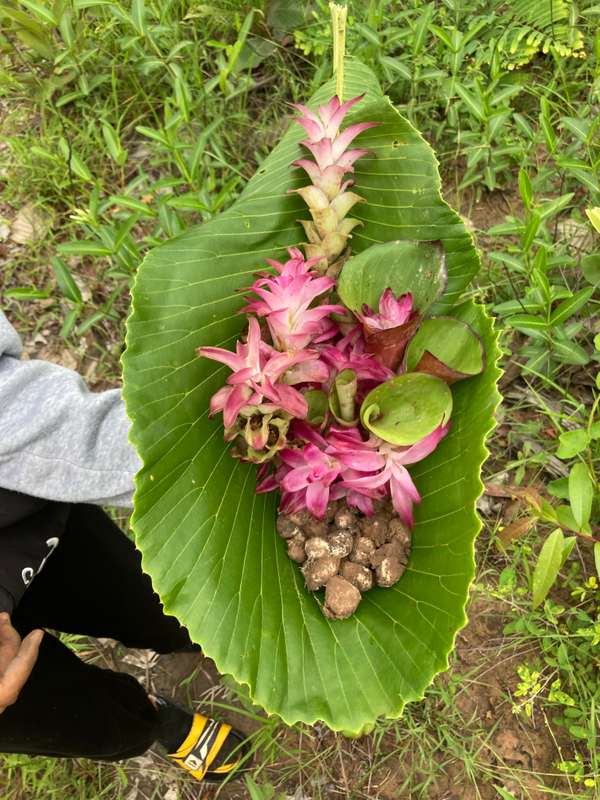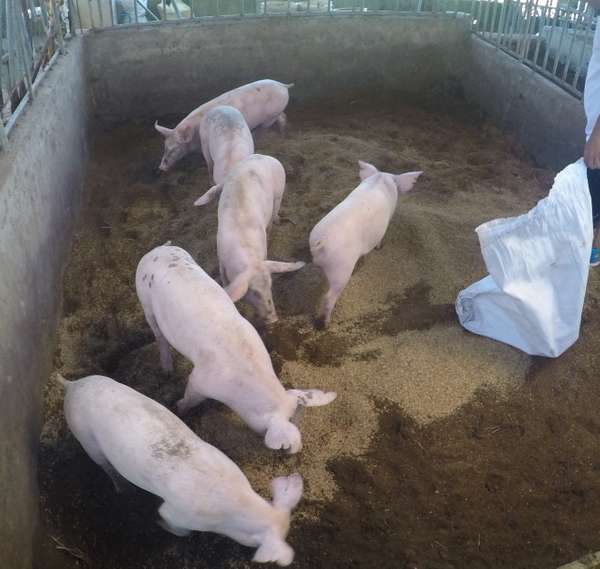ECHOcommunity อัปเดต
Research Update: Options for drying Moringa leaves 2024-02-20
ECHO staff have often fielded questions about ways to easily dry moringa leaves such as "Can you dry moringa leaves at room temperature?" It would be nice, especially if it’s raining outside, to be able to dry moringa leaves by simply placing them on a flat surface in your house. Will the leaves become moldy? Conditions that favor mold are high humidity and heat, combined with poor air circulation. Dr. Motis decided to try drying a handful of moringa leaves in his office since it is an air-conditioned space to see what would happen!
How do you dry moringa leaves? Please share your experience and knowledge with the wider ECHO Community!
MissionAssist shares literacy booklets through ECHOcommunity! 2024-02-13
MissionAssist produces a wide range of adult literacy booklets in four widely used languages: English, French, Portuguese, and Spanish. The booklets cover a range of subjects from health and hygiene to crafts, farming, and practical issues like simple construction techniques. MissionAssist is one of the more recent ECHOcommunity partners sharing content through ECHOcommunity.org and the ECHOcommunity mobile app so that they can serve an even larger audience.
ECHO places a high value on working with partners to 'reduce the friction' of discovering relevant resources quickly by indexing appropriate scientific and technical resources within ECHOcommunity.org. We are always interested in suggestions for new topics or resources that will benefit ECHO network members. Send any observations or suggestions to submissions@echocommunity.org
Early Bird Rate Extended to Feb 9th! Introduction to Tropical Agriculture Development Course 2024-02-06
ECHO North America | North Fort Myers, Florida
Register now to take advantage of the early bird rate and save! This course covers a broad range of topics relevant to those starting in agricultural development in a tropical environment. The purpose of this class is to expose attendees to several different ideas and concepts.
April 2-5 Register Today
This course is for those interested in preparing for short to long-term involvement in international agriculture development. Topics and discussions will focus on improved food security and agricultural livelihoods for small-scale farmers in developing countries. Participants will be introduced to the complexities related to poverty and community development. They will also be introduced to principles and practices that contribute toward maintaining healthy and productive soil as well as improved water management and crop production.
ECHO North America Regional Impact Center 2024 Training Calendar 2024-01-30
ECHO North America is excited to announce this year's 2024 training calendar. Please join us on the global demonstration farm this year as we learn and inspire together. Located in North Fort Myers, Florida, our training center contains 5 acres of sustainable agriculture demonstrations that act as a living classroom for people heading to the tropics. Our experienced trainers will walk you through topics related to smallholder production in the tropics, syntropic agriculture, agricultural design, and more! If you have any questions, please email study@echonet.org.
Updated Plant Information about Katuk 2024-01-23
After some questions came in from ECHO's network, our agriculture technical and seed bank staff have updated our Plant Information Sheet about kayuk (Sauropus androgynus). Katuk is a perennial green that grows well in lowland, warm regions of the subtropics and tropics. Its leaves are high in protein and taste similar to garden peas. It prefers partial shade and develops into a bushy shrub when the tips are harvested frequently.
Read the whole plant information sheet online
Now Available! ECHO Technical Note #101: Bamboo Load-Centered Wheelbarrow 2024-01-16
A standard wheelbarrow, with the wheel at the front, places about half the weight of the load on the operator. A load-centered wheelbarrow places the wheel in the center of the load, shifting 90% or more of the weight to the wheel instead of the operator. This allows the device to be used for distance hauling on narrow paths. ECHO developed a design that is scaled down to use a bicycle wheel. This load-centered wheelbarrow, pictured in figure 1 and the focus of this document, can be built with bamboo or other locally available material. This document contains instructions for the wheelbarrow that ECHO built and tested, including additional tips for construction and use.
EDN #162 Now Available 2024-01-09
In this issue
- Contour Cultivation and Live Barriers for Small-Scale Farmers
- Taro (Colocasia esculenta)
- From ECHO’s Seed Bank: Oven-Dried Rice as a Desiccant for Seed Drying
- Books, Websites, and Other Resources: ECHOCommunity Mobile App - Resource Management
Contour Cultivation and Live Barriers for Small-Scale Farmers
Robert Walle
Excerpt:
When increasing distances, important things to consider are the barrier species; their effectiveness in soil and water conservation; and the crop space needed. For example, agroforestry trees alone are usually less effective barriers than grasses. In combination, however, they can provide leguminous fodder while conserving soil and water.
Share what you know about SE Asia Wild Foods! 2024-01-02
Plant Planet Plate is a recently launched project in Oddar Meanchey Province, Northwest Cambodia by Dr. Ashley Thuthao Keng Dam, a medical anthropologist and a National Geographic Explorer and Green Shoots Foundation, a UK/Cambodian registered NGO running a permaculture farm and training space in Oddar Meanchey. Plant Planet Plate aims to celebrate and document foraging and wild-food knowledge in Cambodia and demonstrate that building resilient landscapes and understanding food history can improve food security and curb the impacts of climate change.
We feel this project is timely as Cambodia's rich biodiversity is at threat from climate change, loss of habitat, and changes in ecosystem. Documentation of species is limited and if any, has been orally passed down by elders, family members, and Khmer Traditional Medicine healers. However, the role these plants play in supplementing diets (particularly during COVID 19 for example) shows how important it is to not only begin recognizing the villagers, foragers, and healers as the true custodians of this knowledge but also preserve their word because it's contribution to the plant-world, conservation efforts and academia is unmatched.
In June 2023 the team comprising, Dr Thao, Muneezay Jaffery from Green Shoots Foundation, and Mr Sarin Sak, a local agronomist, set out in the vicinity of Samraong District of Oddar Meanchey Province to conduct 50 interviews with households on the wild-foods they gather, how they eat them, where they go forage and so forth. This information and other details of the plants will be compiled into a database that will be available in English, French, and Khmer as essays for the use of academics, plant enthusiasts, growers, and food enthusiasts.
At the end of the 50 interviews (around four weeks) we have around 125 names of plants in Khmer and we are now taking the step to find corresponding scientific names, common names, and plant families. So far, using various sources, we have around 40 scientific names for the plants and are looking to the ECHO Community to help us identify a few more!
One thing we know is that plants and biodiversity don't observe political/administrative boundaries. Many of the plants enjoyed in Cambodia would also be popular in Laos, Thailand, Vietnam and other countries in Asia. So we hope the ECHO Community from those regions and within the diaspora will help us verify names of plants and any other details they can provide.
Now Available! ECHO Technical Note #100: Animal Production Litter Systems 2023-12-19
Litter systems are an approach to hygienic, integrated animal production in which animals are raised in an enclosed space on a floor of organic bedding. Systems with thick bedding material are sometimes called deep litter systems. Litter systems allow you to prioritize animal health by providing conditions like those in animals’ natural environments. Litter systems also help capture animal waste and convert it to usable forms for crop production. ECHO is aware of litter systems for pigs, rabbits, poultry, and ruminants.
This publication is also available in Spanish and French.
I-TEC Installs Solar Panels for ECHO Florida 2023-12-12
 August may not be the preferred month to be installing solar panels on a shop roof in Florida, but our intrepid friends from I-TEC would not be denied. How we appreciate their good work!
August may not be the preferred month to be installing solar panels on a shop roof in Florida, but our intrepid friends from I-TEC would not be denied. How we appreciate their good work!
I-TEC is a non-denominational ministry utilizing volunteers to meet the technical needs of missionaries and not-for-profit organizations worldwide.
Click here to see I-TEC pictures of the project.

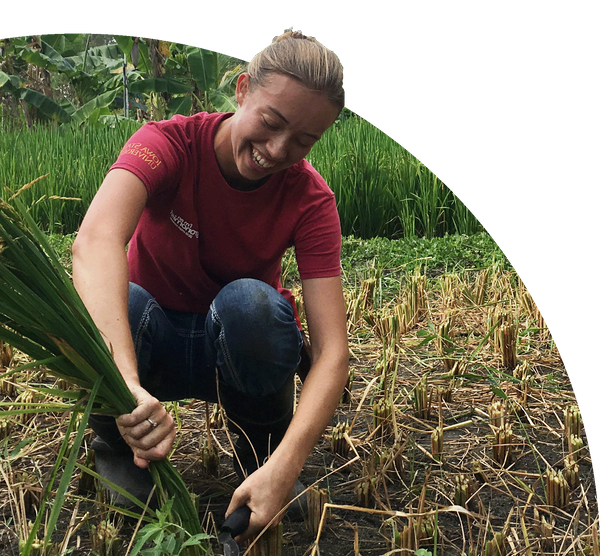
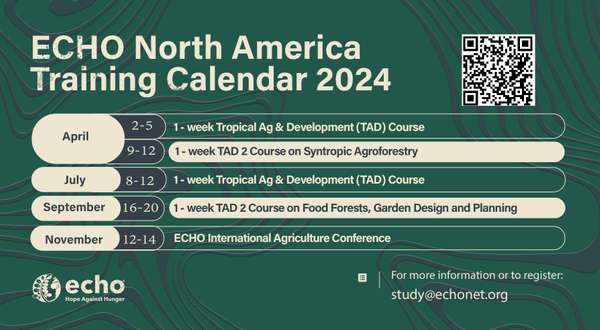
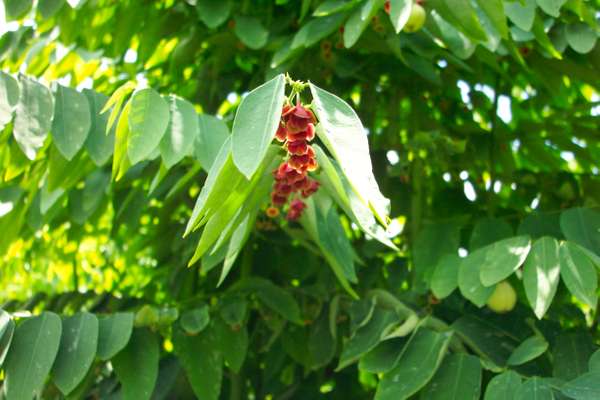
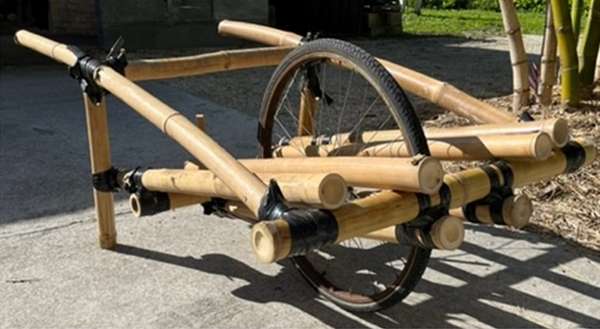
.png?w=600)
